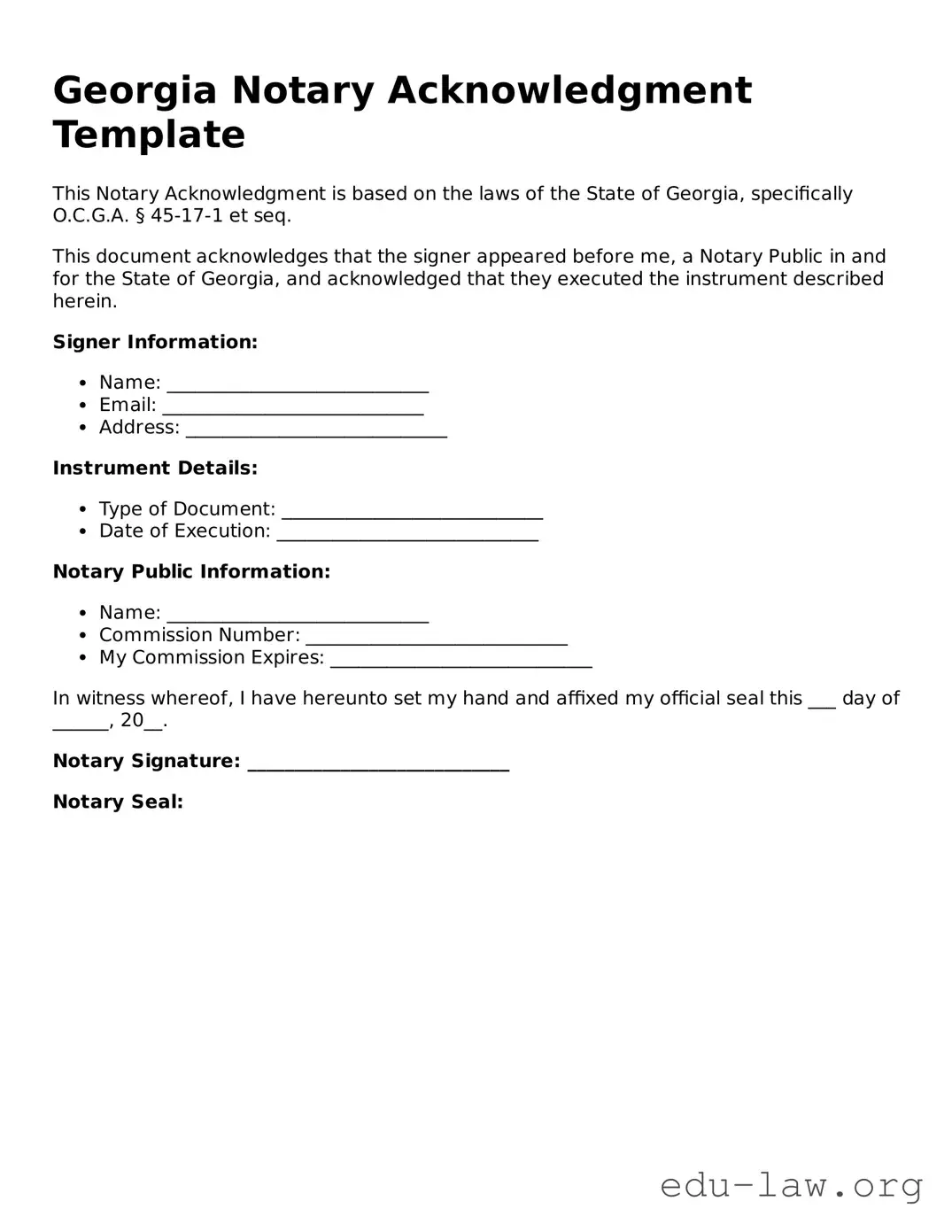Georgia Notary Acknowledgment Template
This Notary Acknowledgment is based on the laws of the State of Georgia, specifically O.C.G.A. § 45-17-1 et seq.
This document acknowledges that the signer appeared before me, a Notary Public in and for the State of Georgia, and acknowledged that they executed the instrument described herein.
Signer Information:
- Name: ____________________________
- Email: ____________________________
- Address: ____________________________
Instrument Details:
- Type of Document: ____________________________
- Date of Execution: ____________________________
Notary Public Information:
- Name: ____________________________
- Commission Number: ____________________________
- My Commission Expires: ____________________________
In witness whereof, I have hereunto set my hand and affixed my official seal this ___ day of ______, 20__.
Notary Signature: ____________________________
Notary Seal:
